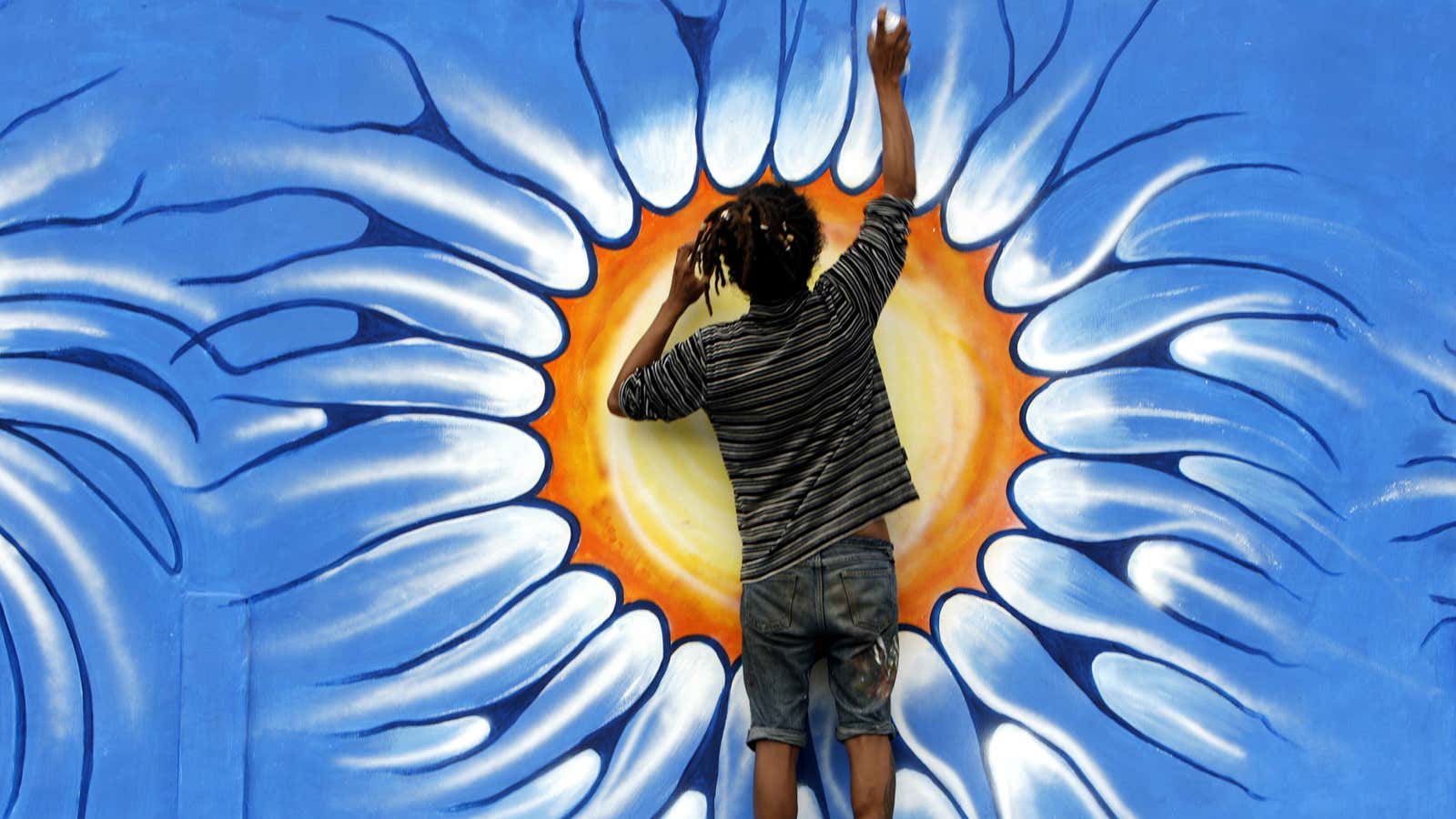What comes to mind when you think of a stereotypically creative person? Now, try to behave like that person. It could boost your creativity.
That’s the remarkably simple conclusion of a recent study, which explores a phenomenon known as the “stereotype effect.” In the first experiment, study authors Denis Dumas and Kevin Dunbar from the University of Maryland recruited 96 American undergraduate students, studying a range of degrees—including biology, physics, and art. A third of group were asked to imagine they were “an eccentric poet,” another third were told to imagine they were “a rigid librarian,” and the final third weren’t told to be a specific stereotype.
Researchers don’t necessarily believe in these stereotypes, but note it was a stereotype generally held by these undergraduate students. The students were then asked to complete the Alternative Uses test, which has been widely used in research on creativity.
Participants were given the name of 10 objects, such as a book and fork, and were asked to come up with as many different uses for it. Researchers measured creativity by counting the number of uses the participants came up with (known as fluency) and how original their answers were.
The study, published in PLOS ONE, found that participants who imagined themselves as eccentric poets got the highest score, while those who took on the persona of rigid librarian had the lowest score (the ones not given a specific stereotype ended up somewhere in the middle).
In the second experiment, another 106 students were asked to be an eccentric poet for half of the test and rigid librarians in the second half of the test. Researchers found the participants scored higher on the test when they took on the persona of an eccentric poet.
Researchers suggest their study offers an explanation for the so-called creativity crisis, where schools and universities have been heavily criticized for “turning students into unimaginative robots.” They argue that creativity is not actually declining, students are just responding to an environment that places an emphasis on test scores, which can result in them thinking more rigidly.
Previous research has shown what impact a particular stereotype can have on a person’s ability; for example, children who don’t see themselves as a “math person” are far more likely to do worse in math tests. This self-fulfilling prophecy is far more likely to affect girls.




